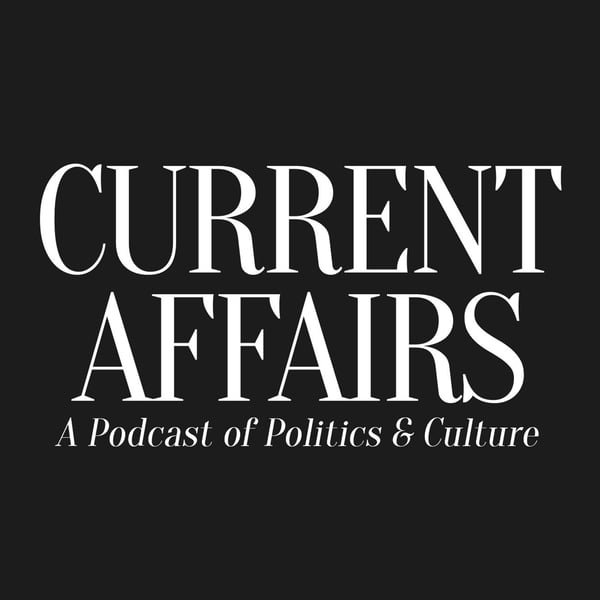How Do The Rich Profit From Racism? From Charter Schools to Private Detention
Current Affairs
Current Affairs
4.4 • 645 Ratings
🗓️ 9 December 2021
⏱️ 54 minutes
🧾️ Download transcript
Summary
Transcript
Click on a timestamp to play from that location
| 0:00.0 | Good evening, Current Affairs listeners. My name is Nathan Robinson. I'm the editor-in-chief of Current Affairs Magazine, and I am here tonight with Jim Freeman. He is the author of the new book, Rich Thanks to Racism, How the Ultra Wealthy Profit from Racial Injustice. He's a civil rights lawyer. He's the director of the |
| 0:23.2 | Social Movement's Support Lab and formerly worked for the Advancement Project where he led the ending |
| 0:29.5 | the school house to jailhouse track project. Jim, it's it's great to meet you. It's great to be |
| 0:35.8 | with you. Likewise. Thanks so much for having me, Nathan. |
| 0:38.6 | So the reason that I was excited about this book is that your book does something that I think is very necessary and somewhat unusual in that we talk a lot about racial injustice and we talk a lot about economic inequality. |
| 0:53.1 | But what you do in this book is you lay out, and I think quite compellingly, how these two things are tied together, how we can't talk about the one without talking about the other. And I think there is still in this country a way of talking about racism that leans too much on the |
| 1:15.6 | idea of racial hatred as the source of racism, hate groups, of active dislike by white people |
| 1:24.8 | for people of color, when in fact the reality of most racism is that |
| 1:30.7 | it seems to come from an indifference to the lives of people of color, a sense that black |
| 1:38.3 | lives of course do not matter to those in power, and a willingness to exploit and harm people of color for the benefit of, |
| 1:49.7 | as you lay out in this book, the ultra wealthy. So I wonder if we could start by just talking |
| 1:57.7 | about maybe that word racism. And when you say, Rich, thanks to racism, |
| 2:05.4 | what do you mean by racism? Yeah, that's a great question. So the, and you're right. You're |
| 2:13.1 | absolutely right in sort of how you summarize the issue is that we still have this tendency to think |
| 2:19.0 | about racism very much in terms of individual behaviors or individual biases. And so we think, |
| 2:27.2 | you know, when we think about the folks who are on the other side of this fight, we usually think |
| 2:31.1 | about, you know, the alt-right and the kinds of folks that were storming the |
| 2:35.4 | Capitol on January 6th. But that's not who passed all of the laws that are responsible for |
| 2:43.2 | deeply rooted racial inequities in this country. And they're not the ones who are doing |
| 2:48.3 | the heavy lifting in defending or even expanding those policies today. So what I wanted to do with the book is talk more about |
| 2:57.0 | systemic racism, but then go further in talking about what I call strategic racism. |
| 3:03.5 | Because systemic racism, you know, we might want to define that as sort of the policies, |
... |
Please login to see the full transcript.
Disclaimer: The podcast and artwork embedded on this page are from Current Affairs, and are the property of its owner and not affiliated with or endorsed by Tapesearch.
Generated transcripts are the property of Current Affairs and are distributed freely under the Fair Use doctrine. Transcripts generated by Tapesearch are not guaranteed to be accurate.
Copyright © Tapesearch 2025.

